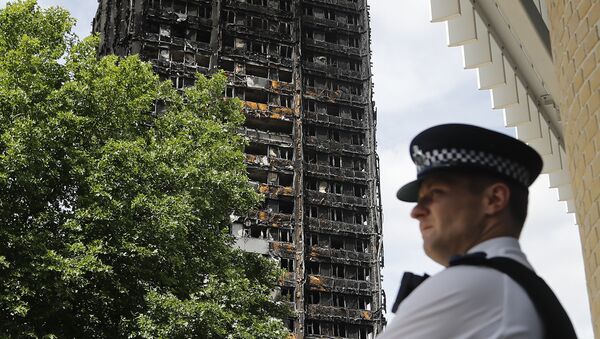Firms that manufactured the cladding for Grenfell Tower “abused” testing regimes responsible for checking fire safety, deliberately misled purchasers about product performance, and sidestepped regulations with strategic marketing, the public inquiry into the 2017 disaster heard on Thursday.
Arconic, who produced the cladding sheets that were the primary culprit for the fire’s spread, received a certificate for its plastic-filled panels based on “a false premise” after the test reports it supplied were based on a more fire-retardant version of the product, according to lawyers for the bereaved and survivors speaking to the inquiry.
The inquiry heard that insulation material provider, Celotex, who's combustible foam was used in the building, displayed a “widespread culture … of ignoring compliance”, which included misreporting a full-scale fire test of its products.
Kingspan, who made up the remainder of the insulation, conducted tests that either concealed components "in a manner designed to facilitate a pass" and/or used materials "that were not as described in the test reports".
The firm's own internal emails revealed that employees knew it was “dodgy” to advertise the material as safe to use in the construction of tall buildings taller than 18 metres.
“It was all too clear that the companies were untroubled by the safety of their products and some of them remain so despite the disastrous fire", said Stephanie Barwise QC, who represents many of the victims.
Grenfell cladding and insulation firms engaged in 'sinister' attempts to undermine regulations, inquiry hears https://t.co/SjRuDT7MNP #ukhousing pic.twitter.com/Wiiw7T6EMn
— Inside Housing (@insidehousing) November 5, 2020
Barwise described the firm's circumvention of regulations through marketing while being fully aware of them as "sinister".
She said that all three companies advertised their products as having the safest ratings for fire spread despite knowing they did not meet the standards.
Barwise added that victims would “struggle to comprehend" the decision of key executives from Arconic not to appear before the inquiry "given their need to understand Arconic’s role in the disaster”.
The newest stage of the inquiry will investigate the manufacturing, testing, and sale of the materials used in the council block refurbishment that led to the fire in June 2017 fire and killed 72 people
All three firms strongly dispute many of the accusations, with Arconic claiming that their products were "misused" in the construction. Their legal representatives are set to issue their own statements prior to the cross-examination of witnesses between now and February.





